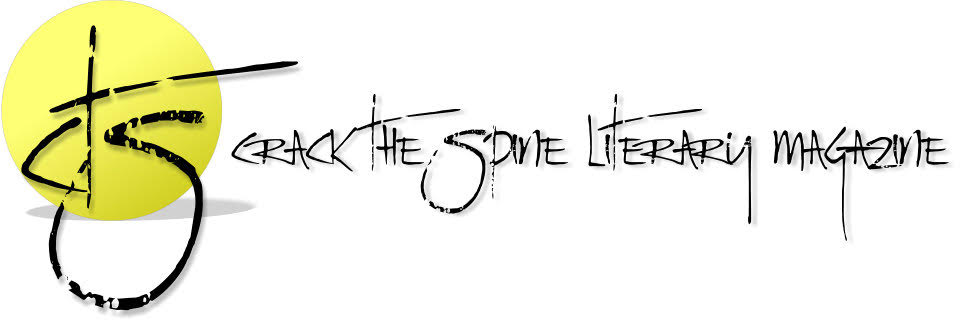 Meet the contributors of upcoming Issue 263
Meet the contributors of upcoming Issue 263
Jean Wolff
Born in Detroit, Michigan, Jean Wolff studied fine arts at the Center for Creative Studies in Detroit and at the University of Michigan in Ann Arbor, receiving a BFA in studio arts. She then attended Hunter College, CUNY in New York, graduating with an MFA in painting and printmaking. She’s since had group and solo exhibits in various galleries in New York City and internationally, published works in 62 issues of 41 magazines, and is part of the artistic community of Westbeth in Manhattan.
Kaia Gallagher
Kaia Gallagher is a free-lance writer who lives in Denver, Colorado. Since earning her MFA in Creative Writing from the University of California-Riverside, she has experimented with many writing genres including memoir, essays and flash fiction. She enjoys reflecting about those aspects of our current lives that will live on well after we are gone.
Lisa Leibow
Lisa Leibow’s work has been published in CommuterLit, Diverse Voices Quarterly, Eleven Eleven, Folly, Griffin, Mulberry Fork, NoVA Bards, Pisgah Review, Red Rose, Rougarou, Sand Hill Review, and Sanskrit. She earned a master’s in writing with a concentration in fiction from Johns Hopkins University, and currently teaches writing at George Washington University and Northern Virginia Community College. She’s a Faulkner-Wisdom Award novel finalist, a two-time merit-based grant recipient and resident at the Vermont Studio Center, and the winner of Pitchapalooza D.C. She’s attended numerous conferences, including AWP, Algonkian Workshop, and the Writer’s Digest New York Conference. In addition, she’s a member of the planning committee for the Washington Writers Conference, and holds leadership positions with both ShutUp&Write and the Johns Hopkins Writing Program Alumni Association.
Nicole Marie Zamudio-Roman
Nicole Marie Zamudio-Roman is a graduate of Rollins College. She received her B.A. in English with a concentration in Creative Writing and will be going on, in the Fall of 2020, to start her M.P.S. in Publishing at George Washington University. Currently, she serves as a reader for Rollins College’s Art and Literary Journal, Brushing. Most of her free time has been devoted to her writing and work in the publishing industry. She has had several poems and articles published, though Creative Communications and The Sandspur, Rollins College’s student-run paper. When she is not writing or working, she can be found watching Netflix, walking her dogs, or reading books with bizarre plotlines and cliffhangers.
Tamara Al-Qaisi-Coleman
Creator and former Editor of Shards through the University of Houston, Tamara Al-Qaisi-Coleman is a bi-racial Muslim writer and artist. She holds dual Bachelor’s degrees in Creative Writing and History. She is the Administrative Coordinator at Writers in the Schools, the Marketing and Development Director of Defunkt Magazine and creator of Brown Girls Book Club. Her interests are Middle Eastern History, culture, linguistics, and biracial identity. She primarily writes from the Arab-American perspective. She as a featured performer at The Museum of Fine Arts and Houston Grand Opera’s event “The Art of Intimacy” January 2020. Her fiction, poetry, essays, and translation publications can be found or are forthcoming in: Scintilla Magazine, Paper Trains Journal, The Bayou Review: The Women’s Issue, and Glass Mountain, Volume 21, Dead Eyes Literary Magazine. Her visual Artistry can be found in Cosumnes River Journal, Sonder Midwest Review, and Wordpeace Magazine.
B.B. Garin
B. B. Garin is a writer living in Buffalo, NY. She holds a B.F.A. in Writing, Literature, and Publishing from Emerson College. Her e-chapbook, New Songs For Old Radios, is available from Wordrunner Press. She has been nominated for a 2020 Pushcart Prize and was a semi-finalist in Sunspot Literary’s Inceptions Contest. Her work has also appeared in Embark and Inklette. She is a current member of the GrubStreet writing center in Boston, where she has developed a series of short fiction pieces, as well as a novel.
Joanna Kadish
Joanna’s work has appeared in a handful of literary magazines, print and online, including Catamaran Literary Review, Adelaide Literary Magazine, Potato Soup Journal, Literary Orphans, Cultured Vultures, and Citron Revie. and is slated to appear in Juked summer 2020 issue She was a finalist in Cutthroat’s 2016 Rick DeMarinis Short Fiction Contest, and received honorable mention in GlimmerTrain’s Emerging Writers Contest for 2015 and 2016. Before that, she was a regular freelance contributor for the New Jersey Regional Section of The New York Times, and several regional newspapers and magazines, including The Cleveland Plain Dealer and Asbury Park Press, and received a few awards for essay and feature writing from the Society of Professional Journalists. After self-publishing two novels she went for an MFA in creative writing from Bennington Writing Seminars in Vermont. Her undergraduate degree in literature and philosophy is from UC Berkeley.
Cameron Morse
Cameron Morse was diagnosed with a glioblastoma in 2014. With a 14.6 month life expectancy, he entered the Creative Writing Program at the University of Missouri—Kansas City and, in 2018, graduated with an M.F.A. His poems have been published in numerous magazines, including New Letters, Bridge Eight, Portland Review and South Dakota Review. His first poetry collection, Fall Risk, won Glass Lyre Press’s 2018 Best Book Award. His latest is Terminal Destination (Spartan Press, 2019). He lives with his wife Lili and son Theodore in Blue Springs, Missouri, where he serves as poetry editor for Harbor Review. For more information, check out his Facebook page or website.
Mercury Marvin Sunderland
Mercury Marvin Sunderland is a Hellenist transgender autistic gay man who uses he/him pronouns. He’s from Seattle. He currently attends The Evergreen State College, and his dream is to become the most banned author in human history. He can be found as @Romangodmercury on Instagram and Facebook.
Issue 263 will also feature a book review by CTS Short Fiction Editor, Konstantin Rega.
